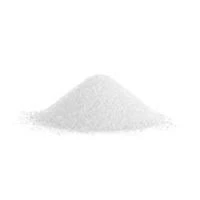
Understanding the Effects and Uses of MSG as a Food Additive
The Role and Impact of MSG as a Food Additive
Monosodium glutamate, commonly known as MSG, has been a topic of intense debate and scrutiny since its introduction as a food additive in the early 20th century. Discovered in 1908 by Japanese chemist Kikunae Ikeda, MSG is the sodium salt of glutamic acid, an amino acid that naturally occurs in many foods. Ikeda's motivation for isolating MSG was to uncover the source of the savory taste found in foods like seaweed broth. This umami flavor profile, recognized as one of the five basic tastes, has since led to the widespread use of MSG in various culinary applications.
The Role and Impact of MSG as a Food Additive
Despite its popularity, MSG has been at the center of controversy, especially since the 1969 publication of a letter in the journal New England Journal of Medicine by Dr. Robert Ho Man Kwok. In his letter, Dr. Kwok reported experiencing a range of symptoms, such as headaches and nausea, after consuming Chinese food that contained MSG. This sparked what became known as Chinese Restaurant Syndrome (CRS), leading many to associate MSG with adverse health effects. Subsequent studies have explored the potential side effects of MSG, but results have been largely inconclusive. Meta-analyses have often concluded that, for the general population, MSG is safe when consumed in normal amounts. However, some individuals may experience sensitivity to MSG, which can trigger symptoms in a small subset of the population.
food additive msg

Regulatory bodies such as the Food and Drug Administration (FDA) and the European Food Safety Authority (EFSA) classify MSG as safe for consumption. These organizations recognize that extensive research has shown no solid evidence linking MSG with serious health issues. In recent years, the rise of food awareness and the clean label movement has led to a backlash against many additives, including MSG. Some consumers are becoming increasingly inclined to avoid processed foods containing additives, leading manufacturers to reformulate their products or explicitly label them as MSG-free.
Despite its controversies, MSG has legitimate uses in culinary arts beyond just being a simple additive. Many chefs and home cooks alike appreciate the depth of flavor that MSG can provide. It complements and enhances the natural flavors of food, making dishes more enjoyable. For those looking to reduce sodium intake without compromising taste, MSG serves as a practical solution. Additionally, its use in cooking is supported by various cuisines around the world, not just Asian cooking. From Italian tomato sauces to American barbecue rubs, chefs from multiple culinary traditions have recognized the merits of this additive.
Furthermore, the science behind MSG is gaining traction in the context of food technology and sustainability. With the growing global population, there is an increased need for efficient food production techniques. Using flavor enhancers like MSG can help optimize food formulations and reduce food waste by ensuring that consumers are satisfied with enhanced flavors, even when foods are produced using fewer resources. This enhances both food security and sustainability efforts in the food industry.
In conclusion, while MSG has faced criticism and scrutiny since its inception, it remains an integral component of modern food production and culinary practice. As science continues to unravel the complexities of flavor and human taste perception, MSG may well continue to hold its place in kitchens and food products around the globe. Whether embraced or avoided, the legacy of MSG serves as a reminder of the delicate balance between enhancing flavor and addressing health concerns in our ever-evolving relationship with food.
-
Understanding Synthetic Rubber OptionsNewsApr.27,2025
-
Trichloroisocyanuric Acid: Essential for Clean and Safe WaterNewsApr.27,2025
-
Sodium Dichloroisocyanurate: Key to Safe Water TreatmentNewsApr.27,2025
-
Sodium Acid Pyrophosphate: Essential in Modern Food ProcessingNewsApr.27,2025
-
Essential Water Treatment ChemicalsNewsApr.27,2025
-
Denatured Alcohol and Its Industrial UsesNewsApr.27,2025
-
The Versatile Uses of Sodium BicarbonateNewsApr.24,2025
Hebei Tenger Chemical Technology Co., Ltd. focuses on the chemical industry and is committed to the export service of chemical raw materials.
-

view more DiethanolisopropanolamineIn the ever-growing field of chemical solutions, diethanolisopropanolamine (DEIPA) stands out as a versatile and important compound. Due to its unique chemical structure and properties, DEIPA is of interest to various industries including construction, personal care, and agriculture. -

view more TriisopropanolamineTriisopropanolamine (TIPA) alkanol amine substance, is a kind of alcohol amine compound with amino and alcohol hydroxyl, and because of its molecules contains both amino and hydroxyl. -

view more Tetramethyl Thiuram DisulfideTetramethyl thiuram disulfide, also known as TMTD, is a white to light-yellow powder with a distinct sulfur-like odor. It is soluble in organic solvents such as benzene, acetone, and ethyl acetate, making it highly versatile for use in different formulations. TMTD is known for its excellent vulcanization acceleration properties, which makes it a key ingredient in the production of rubber products. Additionally, it acts as an effective fungicide and bactericide, making it valuable in agricultural applications. Its high purity and stability ensure consistent performance, making it a preferred choice for manufacturers across various industries.











